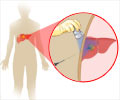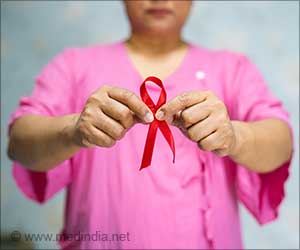Regular exercise may go a long way to preventing liver cancer by activating a gene that suppresses tumor growth, a new study suggests.

‘People with obesity and type 2 diabetes are at high risk of liver cancer and could particularly benefit from exercise.
’
Read More..




Fatty liver disease is common with obesity and diabetes and contributes to rapidly increasing rates of liver cancer throughout the world. More than 800,000 people worldwide are diagnosed with this cancer each year. It is also a leading cause of cancer deaths, accounting globally for more than 700,000 deaths each year. Read More..
"As yet there are very few effective therapies for liver cancer (the death rate approximates the incidence), so approaches to prevent liver cancer are greatly needed," explained lead investigator Geoffrey C. Farrell, MD, Liver Research Group, ANU Medical School, Australian National University at The Canberra Hospital, Garran, ACT, Australia.
"Some population data suggest that persons who exercise regularly are less likely to develop liver cancer but studies addressing whether this has a real biological basis, and, if so, identifying the molecular mechanism that produces such a protective effect are few and the findings have been inconclusive."
Investigators studied whether exercise reduces the development of liver cancer in obese/diabetic mice. Mice genetically driven to eat so that they become obese and develop type 2 diabetes as young adults were injected early in life with a low dose of a cancer-causing agent. Half of the mice were allowed regular access to a running wheel; the other half were not and remained sedentary. The mice ran up to 40 kilometers a day as measured by rotations of the exercise wheel. This slowed down the weight gain for three months, but at the end of six months of experiments, even the exercising mice were obese. At six months, most of the sedentary mice had liver cancer while none of the exercising mice had developed it.
This research shows that exercise can stop the development of liver cancer in mice that have fatty liver disease related to obesity and type 2 diabetes. Specifically, while nearly all obese mice injected with a low dose of a cancer-causing agent developed liver cancer within six months, mice that regularly exercised failed to do so. They were completely protected against liver cancer development in the timeframe of these experiments. Weight control did not mitigate the development of liver cancer.
Advertisement
The investigators first demonstrated JNK1 activation to be a key factor that can be "switched off" by exercise and proved its involvement by separate studies in obese mice lacking JNK1. They also demonstrated that activated p53, known as "guardian of the cell" and "policeman of the oncogenes," is important for regulation of the cell cycle inhibitor, p27, thereby stopping the persistent growth of altered cells destined to become cancerous.
"Also, knowing the molecular pathways involved points to ways that drugs or pharmaconutrients could be employed to harness the powerful protective effect of exercise to lower the risk of liver cancer in overweight people with diabetes."
Source-Eurekalert















